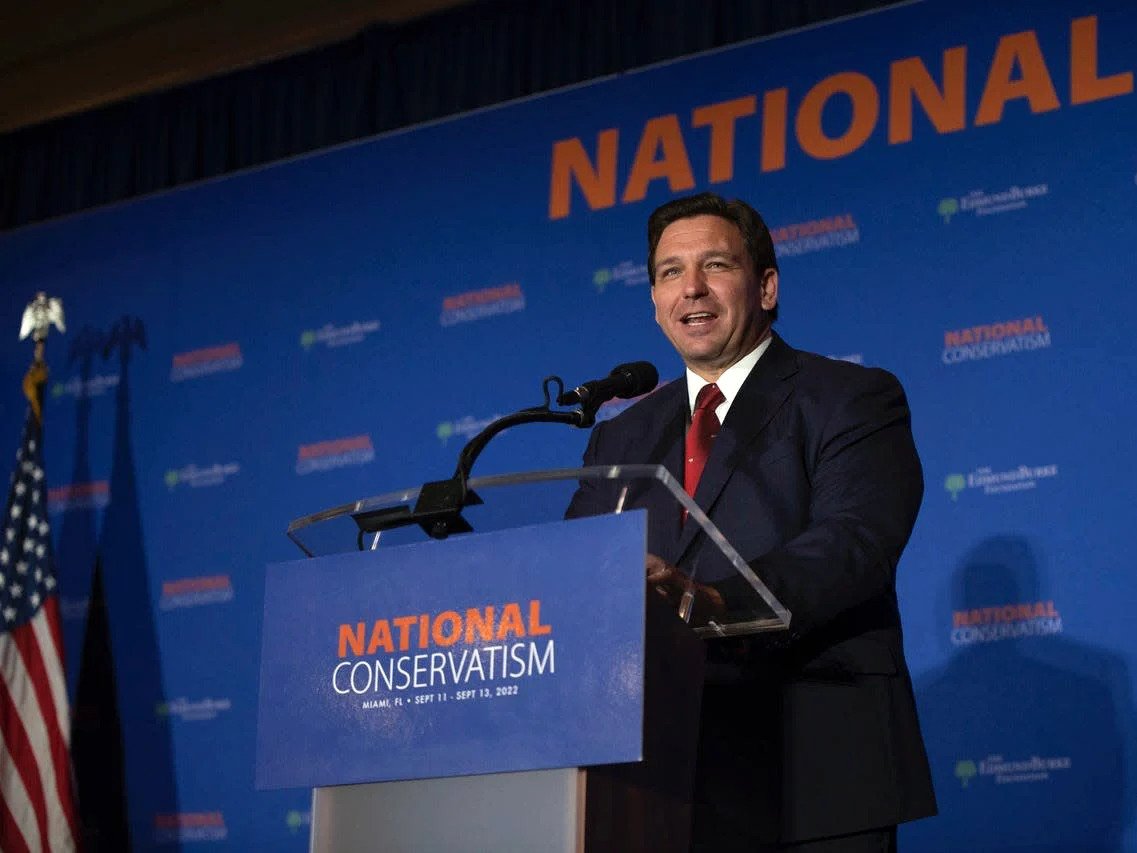The American way needs defending against a corrupt ruling class.
Failure as Planned

To fight environmentalist sabotage, conservatives need their own set of business principles.
The following is a transcript of remarks originally given in Miami at the National Conservatism Conference in September 2022.
Abundant evidence shows that ESG is a poor financial performer.
Maybe ESG investors know that, but they don’t mind because they care about promoting ESG goals even at the expense of some measure of profit. But if that is the metric of ESG investors, then ESG fails there as well.
A growing chorus of voices on the Left complains that ESG is just a way to cloak classic corporate greed with good feelings while failing actually to produce good deeds. Figures ranging from British hedge fund activist Christopher Hohn to Congresswoman Alexandria Ocasio Cortez have argued that ESG doesn’t really deliver the “virtuous” results it promises.
Research supports that view. One paper from the European Corporate Governance Institute found that companies whose assets were held by ESG investors fared no better on ESG metrics over time.
Another study by researchers at Columbia University and the London School of Economics found that the companies in the ESG portfolios studied actually had worse compliance records for both labor and environmental rules and that those underperforming companies did not improve their compliance as a result of ESG investing.
Connecting the two dots: investors appear willing to sacrifice financial performance for the woke morality claims of ESG investing . . . yet credible evidence shows that ESG investing does not actually advance woke morality claims in the real world. In short, ESG is a failure all the way around.
Or is it?
I hope you will consider with me what I believe to be the deeper truth: ESG is designed to fail.
When he left his post as BlackRock’s first global chief investment officer for sustainable investing, Tariq Fancy wrote about the future of ESG.
Fancy agreed with activists like AOC and Christopher Hohn that ESG “is making matters worse” from the perspective of woke believers, because it is “leading the world into a dangerous mirage,” “craftily greenwashing the economic system and delaying overdue systemic solutions.” Fancy’s point is that ESG persuades woke investors that their goals can be achieved by clever investing in the free market when in reality, the only thing that can achieve those woke goals is his so-called “systemic solution”: government control over whole sectors of the economy.
It’s my claim that the Left will soon turn en masse against ESG precisely because its failures provide compelling evidence that clever investment through the “mechanism of the market” cannot produce the solutions the Left believes are needed to stop the rise of the oceans or undo systemic racism. The Left will tell us that what is needed is government regulation and control.
And in its full maturation, ESG will end with companies under the thumb of government regulators. When the so-called “market” fails to bow to the views of woke investors as reflected in ESG standards, the Left will claim it has “no choice” but to use the power of government to enforce those standards directly—to enact them as law.
We often associate the word “greed” with an appetite for wealth. But in its etymology, “greed” also means an appetite for power. Read the documents the Left publishes. Larry Fink’s “A Sense of Purpose”; The World Economic Forum’s “The Universal Purpose of a Company in the Fourth Industrial Revolution”; the United Nations’ “Agenda 21” and “The Future We Want.” These documents are ostensibly about wealth and scattered paeans to racial diversity and sustainability. But I think they’re best understood as documents about power and how to take it. And in that sense, ESG is a battlefield in a war of principles—woke principles versus our alternative.
Fake Neutrality
And what is the alternative that our leading conservative thinkers are offering?
Leading conservatives blandly proclaim that corporations should be neutral on moral and political issues and consumers should be, too. When we spend our dollars we should do so purely as consumers, seeking value for our money and profit returns on our capital.
And we wonder why we’re losing.
On ESG, the Left is arguing from principle: environmental regulation and racial diversity, equity, and inclusion are moral imperatives that companies must be forced to obey. And our answer is to advocate . . . neutrality? As if we have no contrary principles. As if we believe that economic activity is divorced from morality or the human person.
One notable establishment voice is Vivek Ramaswamy. In a podcast interview, Ramaswamy quotes a co-founder of Airbnb who said in a closed-door meeting that “We’re not here to promote American values.” Ramaswany responded: “My principles say that’s ok. That’s a perfectly legitimate thing for a company to say, even a company that bases its headquarters in America is that ‘we are not here to promote American values.’. . . It’s a legitimate thing for a company to say in the open.”
I disagree. And I think many Americans do, too.
Here’s what it looks like when companies follow Ramaswamy’s advice and seek only profits and “value neutrality”:
A corporate elite with no obligation but to pursue profit, which views the living, breathing American worker merely as a raw labor input. Immigration, then, is seen as a means to take labor from whatever source is cheapest.
A so-called “neutral” policy, where the “free” labor market dictates, allows companies to import low-wage workers through America’s generous and numerous visa programs to replace wage-earning Americans—while imposing on those same Americans the social costs of mass immigration.
Expanded welfare, Medicaid, rent supplements, food stamps, inundated courts and prisons, and proliferating language remediation in our schools and government offices.
In other words, so-called “neutral” corporations privatize their profits from low-wage labor, while socializing the costs. Low-wage labor and higher profits for me; expanding (and expensive) social programs and an increasingly unrecognizable country for thee. Or, as Pat Buchanan once observed, a corporation free of any obligation to the American people works “ceaselessly to erase borders and diminish national sovereignty.”
Companies with “neutral values” would have no shame in, for example, selling highly addictive opioids to working class communities. They would feel no regret in trafficking fetal body parts or profiting from abortion. They would feel no compunction in outsourcing our factories, polluting our environment, ripping off workers, unfairly squashing family businesses, or swallowing family farms. “Neutral values” is a nifty phrase for “no values”—or simply, “immoral.”
I could go on, but you get the idea.
There are American principles, and we should not be sheepish in demanding that companies adhere to them, including by constructing a legal regime—whether on immigration or fetal research, or any number of other issues—that forces them to.
Nail Things Down
Let me make three final points, quickly. First, America’s bargain with its corporations is not a bargain of neutrality as Vivek Ramaswamy claims. Any corporation that is headquartered in America—or indeed, any corporation that merely does business in America—is a beneficiary of the American people. It is our rule of law, our social stability, our neutral adjudication, our anti-corruption laws, our freedom of contract, our American principles that benefit the corporate enterprise—yes, even Airbnb’s corporate enterprise. And because corporations eagerly accept this gratuity from the American people, they should expect to incur obligations to the American people as well.
Second, States have the leading role here. It is states that incorporate businesses; states have the ability to set policy; and, through the natural demographic sorting process that is underway in this country, states have the greatest ability to espouse conservative principles—not every state, but at least conservative states.
Our host here in Florida, Governor DeSantis, has pointed the way. No state has been more aggressive than Florida in enacting conservative principles into law and demanding that corporations follow them—enacting protections for employees from the excretions of the diversity, equity, and inclusion con; protecting children from sexualization at school; and refusing to shelter corporations, like the House of Mouse, who didn’t like it. This is fighting principle with principle. This is understanding the war for what it is and meeting the Left on the battlefield.
Third, I want to be honest: We may not win. The Left controls nearly all political and cultural institutions in this country, and they will bring enormous pressure to bear against our principles and in favor of their own, woke ones. But let’s remember that the reason the Left owns so much of the edifice of power in this country is precisely because conservatives have countered the principles of the Left with neutrality. When they are in power, the Left gains ground. When we are in power, we maintain neutrality—essentially keeping the status quo until the Left can return to power and advance its regime once more.
The rising generation of conservatives—the Millennials and the Zoomers—were born into a conservative movement that recites a tired litany of slogans about “free markets” and “low taxes.” In some way, the success of the American corporate economy blinded conservatives to our nation’s cultural decay and our social degeneracy. And no wonder. As Roger Scruton once observed, “a vision of life . . . where the sole aim of social existence is the accumulation of wealth and the sole concern of politics the discovery of the most effective means to wealth” is desultory and, ultimately, destructive to the common good.
Our answer to ESG cannot be simply to ask companies to remain “neutral” and focus only on maximizing profit. No. The American people matter.
Where I grew up in the San Joaquin Valley of California—a region that makes Appalachia look like the Principality of Monaco—my working-class father used to say that the most important law to understand was the law of meth addicts: “if it ain’t nailed down, I’m taking it.” Cars, lawn mowers, porch furniture, tools, jewelry—even the trash in your front yard. The answer to meth addicts is to nail things down. It is the only boundary their mania respects.
So too for conservatives in our conflict with the Left. We must nail things down. We must stake a principle and be prepared to fight for it.
The American Mind presents a range of perspectives. Views are writers’ own and do not necessarily represent those of The Claremont Institute.
The American Mind is a publication of the Claremont Institute, a non-profit 501(c)(3) organization, dedicated to restoring the principles of the American Founding to their rightful, preeminent authority in our national life. Interested in supporting our work? Gifts to the Claremont Institute are tax-deductible.
America’s men must come back to the home, and they must never walk away again.
Gender ideology and the assault on families and parents.
On the first actuality of a body having womanhood potentially.
Conservatives must stop consenting to play the domesticated opposition.
An infusion of new and previously forbidden ideas—but can they cohere?






